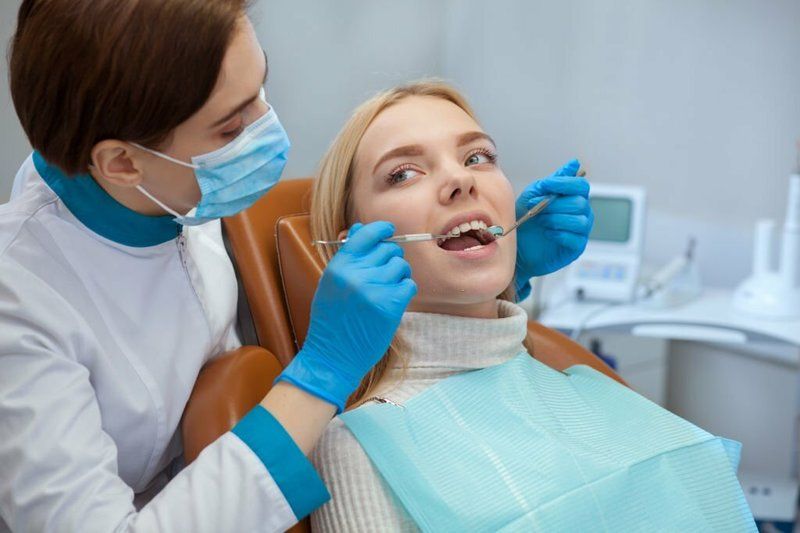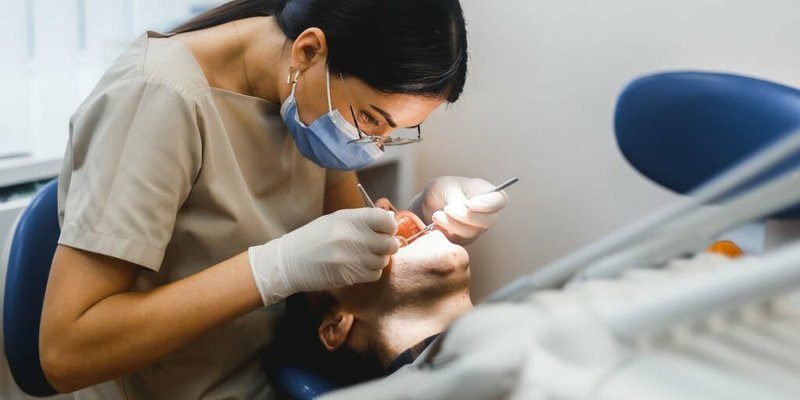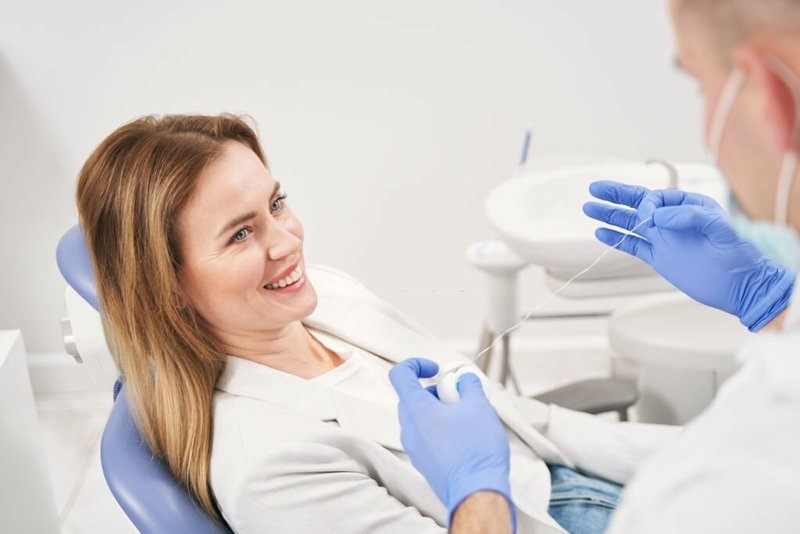
North Carolina’s Emergency Dentist: A Guide To Quality Care
Every 15 seconds, an individual is querying Google for ‘urgent care dental near me.’
Most people don’t think about being prepared for a dental emergency until it happens. But when it occurs, the situation can be overwhelming.
Keeping the same in mind, this blog explores:
- What Constitutes a Dental Emergency?
- Benefits Of Consulting An Emergency Dentist
- First Aid Options For Different Dental Emergencies
In the following sections, let’s learn more about navigating dental emergencies.
Introduction:
Emergencies are uncalled for! You never know when you’ll get into an accident. Such situations require you to stay prepared to navigate through the situation.
 Similarly, oral emergencies are life-threatening. When it comes to it, we must always be prepared for oral emergencies.
Similarly, oral emergencies are life-threatening. When it comes to it, we must always be prepared for oral emergencies.
But how do you prepare yourself for an urgent dental situation? Let’s find out as we learn more about emergency dentistry in the sections below.
What Constitutes A Dental Emergency?
Understanding what a dental emergency is the key to saving a tooth. Once you know the different instances that demand urgent care, you’ll have a better idea of what needs your attention immediately and save you from making mistakes.
Here’s an overview of some of the instances which can be considered as a dental emergency:
Severe toothaches:
Intense, recurring tooth pain caused by infection or decay.
Dental abscesses:
Bacterial infection results in pus pockets, causing severe pain, fever, and edema.
Broken or chipped teeth:
Damaged or fractured teeth due to an injury, accident, or biting on a hard object.
Knocked-out or displaced teeth:
Knocked-out teeth or one that has moved out of position due to trauma.
Lost dental fillings or crowns:
Lost or dislodged fillings or crowns that have become exposed or dislodged due to susceptible tooth structure.
Soft tissue injuries and oral bleeding:
Lacerations, trauma, or cuts on the tongue, gums, or lips, resulting in bleeding and discomfort.
Sometimes, the only thing that hurts is chewing or moving your jaw a certain way. However, you might have to rush into 24-hour dental care if you find it challenging to eat anything.
Another sign of an emergency is excessive or persistent bleeding. While a small quantity of blood after flossing is normal, you should visit a doctor immediately if there is a significant amount.
Of course, not every emergency is life-threatening. There are times when an aesthetic emergency necessitates immediate action. For example, you wouldn’t want to attend a wedding or the gym with a lost or chipped front tooth.
After making a dental visit, anybody who is unclear about a certain instance, talk with your emergency dentist of Carolina. Remember, it’s always better to be cautious than sorry about oral health.
Benefits Of Consulting An Emergency Dentist
Immediate Pain Relief And Comfort
One of the key considerations during a dental emergency is relieving pain and providing rapid comfort. Dental emergencies sometimes entail acute toothaches, infections, or fractures, which can cause excruciating pain.
Seeking emergency dental treatment helps the dentist assess the problem and give suitable pain management methods as soon as possible.
Preventing Further Damage And Complications
Ignoring a dental emergency might result in more harm and even more serious issues. Untreated broken teeth, for example, might deteriorate and result in infection or tooth loss.
Consulting the emergency dentist in your area can help prevent the disease from worsening and reduce long-term repercussions.
Preserving Knocked-Out Teeth
A knocked-out tooth is a common dental emergency that must be treated immediately. Time is important when a tooth is knocked out. Seeking emergency dental care within the first hour enhances the chances of reimplanting the tooth effectively.
Your dentist will advise you on handling the tooth correctly, such as storing it in an appropriate medium, such as saliva or milk, and following the required procedures to stabilize and reinsert the tooth.
Controlling Bleeding And Managing Infections
Dental emergencies caused by injury or trauma may result in bleeding or infection. Emergency dentists can analyze the condition, reduce bleeding, and avoid infections using emergency dentistry.
They can give proper therapy, such as sutures, antibiotic prescriptions, or other essential measures to address the condition adequately.
Timely Diagnosis Of Underlying Dental Conditions
Dental crises may disclose hidden or misdiagnosed underlying dental issues. A strong toothache, for example, might be a sign of an abscessed tooth or advanced dental rot.
Seeking urgent dentistry care allows dentists to thoroughly assess the condition, detect any underlying problems, and give suitable treatment.
First Aid Options For Different Dental Emergencies
1. Managing a Toothache
A severe toothache can be a result of a variety of factors. It might be due to an infection, cracks, chips, or a cavity in your teeth. Ignoring a toothache, attempting home cures to relieve discomfort, or taking pain relievers is a typical error.

Instead, you need to visit an emergency dentist in North Carolina immediately and figure out the underlying cause of your tooth pain. Once done, you can have the treatment to get relief.
2. Responding to Lost Fillings or Crowns
Crowns and fillings, for example, fortify existing damaged teeth. You should immediately see an emergency dentist if you have a loose crown or filling or have already lost one.
- If you lose your crown, keep it somewhere safe until the emergency dentist can re-fix it to your tooth.
- Gargle your mouth with a saltwater solution to avoid infections.
- Brush gently, especially around the affected area.
- Avoid chewing in the vicinity of the afflicted region.
- Do not attempt to repair the problem yourself; call the dentist immediately.
3. Cracked Or Chipped Teeth
Did you crack or chip your teeth while biting down on something hard Or crack it while clenching it?
- Find the lost tooth fragment and place it in milk.
- Swish some warm salt water in your mouth.
- Apply pressure to the injured region while using gauze to halt the bleeding.
- A cold compress can also be used to relieve swelling and discomfort.
4. Object Lodged Between Teeth
It is common for certain foods to become trapped between your teeth and create pain. It can cause an infection if left untreated. Avoid using pins, picks, tweezers, or other sharp items to remove food lodged in your teeth. It can only do more harm by creating cuts, scrapes, or gum damage.

Dental floss is the greatest tool for removing items stuck between your teeth. Swish the salt water solution in your mouth to destroy the bacteria. Even if you remove the items lodged in your teeth, you should see emergency 24-hour dentists to confirm that no residual food affects your teeth.
Takeaway
- Every 15 seconds, an individual is querying Google for ‘urgent care dental near me.
- A severe toothache can be a result of a variety of factors.
- It is common for certain foods to become trapped between your teeth and create pain.
- Don’t stay confused during dental emergencies. Walk straightaway to our experts at Caroline Coast Family Dentistry.
